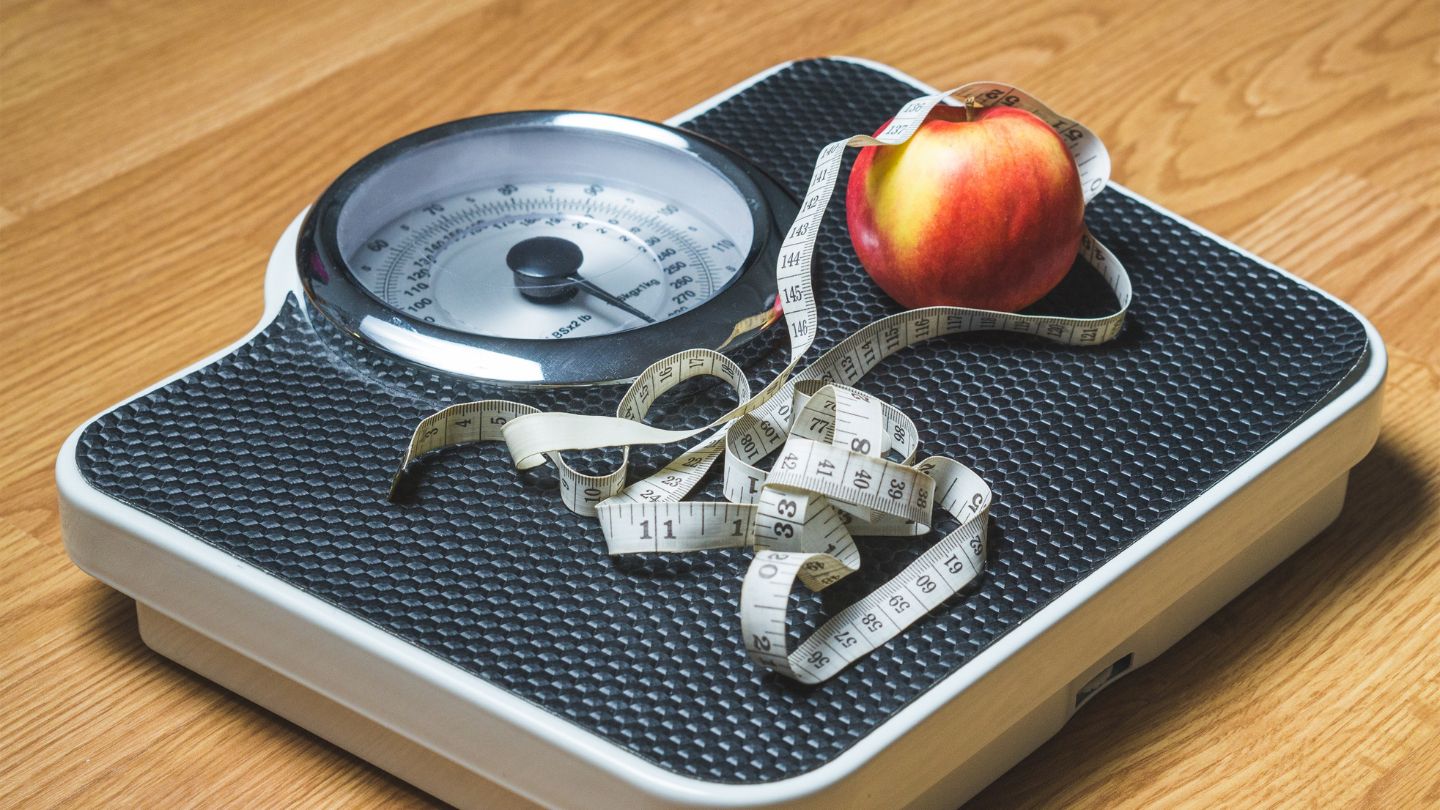Understanding the difference between fat and weight loss is crucial for achieving your fitness goals. Fat loss reduces body fat while preserving muscle mass, leading to better health and sustainable results. In contrast, weight loss can involve losing muscle, water, and even bone mass, which might not improve your health. This article will uncover the key differences between fat loss and weight loss and show why aiming for fat loss is a smarter approach.
Essential Key Takeaways on Fat Loss vs. Weight Loss for Better Health
- Weight loss encompasses decreases in body fat, muscle, water, and bone, while fat loss specifically targets fat reduction and preserves muscle mass.
- Focusing on fat loss offers substantial health benefits, including reduced risks of chronic diseases, improved metabolism, and better overall well-being.
- Accurate assessment of fat loss is crucial; tracking body measurements and utilizing methods like DEXA scans can provide a clearer picture of progress than relying solely on scale weight.
Understanding Weight Loss and Fat Loss

When embarking on a weight loss journey, it is critical to recognize what components of body mass are being diminished. The term ‘weight loss’ encompasses the diminution of one’s body mass, which can be attributed to loss of fat, muscle, bone density, and water content. Conversely, the goal of fat loss is more specific: it concentrates on diminishing stores of fat tissue while striving to maintain muscle mass along with other forms of lean bodily tissues. Distinguishing between these two concepts is essential because factors such as fluid retention or levels of stored glycogen and material within the digestive system can cause fluctuations in weight.
The reduction in overall weight does not necessarily equate to fat reduction. This could occur through dehydration or emptying one’s bowels. In contrast, someone might experience a decrease in their percentage of body fat even without a significant change on the scale if they simultaneously build up muscular strength or size. Focusing on numerical values alone may hide true progress indicators regarding changes within their physical composition.
What is Weight Loss?
Losing weight pertains to overall loss. This can involve the loss of muscle, water, and fat. Healthy weight loss prioritizes fat elimination while maintaining lean muscle mass. Diminished muscle mass can adversely impact how your body manages blood sugar and metabolic functions. It’s essential to remember that variables such as water intake, salt consumption, and carbohydrate ingestion may result in temporary changes in weight. Assessing progress should go beyond mere scale readings when considering effective strategies for losing unwanted pounds.
What is Fat Loss?
Fat loss aims to maintain muscle mass and other lean tissues while decreasing body fat. Achieving this fat reduction should include a calorie deficit and increased physical activity. This emphasizes retaining muscle mass and lean tissues for healthy body composition. This helps ensure lasting results, sustainable benefits, and overall well-being.
Why Focus on Fat Loss Over Weight Loss?

Focusing on fat loss rather than just weight loss offers numerous health benefits. Reducing body fat can lower the risk of chronic diseases like obesity, diabetes, and heart disease. Excessive body fat, particularly visceral fat around the abdomen, can negatively impact physical and mental health. Targeting fat loss is crucial for long-term wellness.
Preserving muscle tissue helps to regulate glucose levels and reduce inflammation. This keeps your metabolism active and avoids metabolic slowdowns or muscle loss associated with rapid weight loss. Benefits include improved digestion, boosted immune response, and increased energy levels, making the journey towards fat loss more rewarding and sustainable.
Shifting focus towards reducing body fat percentage rather than just weight offers more substantial health rewards and better body composition.
Health Benefits of Losing Body Fat

Minimizing excess body fat is crucial in diminishing the chances of developing serious health complications such as heart disease, diabetes, and certain forms of cancer. This is especially pertinent to the visceral fat that encapsulates the organs. Shedding this type of body fat bolsters overall well-being and diminishes the likelihood of encountering chronic conditions.
Eradicating abdominal fat can enhance vascular function, sleep quality, and mental health.
Adopting an integrated regimen that includes a protein-rich diet and consistent strength training, fosters superior bodily composition while slashing risks associated with long-term illnesses. Maintaining a healthy fat percentage is imperative for sustaining general wellness across one’s lifespan. Minimizing unhealthy fat deposits ensures sound physical conditioning.
How to Measure Fat Loss Accurately

Monitoring body fat accurately helps assess progress and steering decisions throughout your weight loss journey. There are various methods of measuring fat. The DEXA scan, which employs X-ray technology, is one of the most accurate techniques to determine body fat percentage and bone density. Although it may be expensive and not widely available, this method yields precise results.
The Bioelectrical Impedance Analysis (BIA) offers another reliable approach to gauging body composition by sending slight electrical currents through the body that differentiate between fatty tissue and lean mass. Skin fold calipers are also a popular tool. They estimate body fat by gauging the thickness of subcutaneous fat in certain areas of the physique. Together with hydrostatic weighing and 3D scans, these strategies provide a detailed insight into one’s bodily makeup.
Basic instruments like a tape measure to record changes in dimensions around key parts such as arms, waistline, thighs, hips, and abdomen can also be effective. Concentrating on overall composition rather than weight alone offers a more profound understanding of progress.
The Impact of Weight Loss on Metabolism
Weight loss can significantly impact metabolism, primarily by reducing muscle mass. When weight loss occurs rapidly, the body may interpret this as a sign of food scarcity and respond by lowering its metabolic rate to conserve energy, anticipating potential starvation.
it is advisable to use methods that protect muscle tissue to preserve lean body mass while losing excess weight, Fluctuations in body mass due to yo-yo dieting can cause persistent declines in metabolic rate and make it difficult to maintain reduced body weight over time.
Understanding the relationship between metabolism and weight reduction is essential when creating effective and sustainable plans.
Preventing Metabolic Slowdown
Preserving muscle mass while shedding weight is crucial for maintaining overall health and preventing a decline in metabolic rate. A swift weight reduction can result in significant muscle loss and impact metabolism and general well-being. It is, therefore, critical to integrate resistance training into your regimen to help maintain lean muscle tissue and enhance metabolic function.
Regular strength training supports fat loss while safeguarding essential muscle mass, an important factor for sustaining a robust metabolism. An increase in muscle tissue has the added benefit of elevating your basal metabolic rate (BMR), assisting quicker recovery from illnesses, helping prevent obesity, and fostering improved metabolic health.
By retaining muscular mass during weight reduction processes, you stave off potential slowing down of the metabolism and lay the groundwork for enduring fat loss with healthier outcomes.
Strategies for Effective Fat Loss

Implementing successful strategies for shedding fat involves maintaining a consistent calorie deficit via diet and physical activity. This gradual approach is advisable as it favors keeping muscle mass intact while eliminating excess body fat. A regimen that blends dietary adjustments with resistance training can pave the way to preserving a healthy body composition over time.
Monitoring caloric intake diligently and crafting enjoyable meal plans are essential to ensuring adherence to a calorie-restricted diet. Prioritizing macronutrients such as protein, alongside carbohydrates and fats, supports both muscle development and efficient loss of fatty tissue.
Commitment to routine exercise coupled with resistance training plays a significant role in diminishing abdominal fat stores and enhancing overall body composition.
Calorie Deficit and Nutrient-Dense Diet
it’s imperative to create a calorie deficit for fat loss and to compel the body to tap into its fat reserves for energy. An estimated daily caloric shortfall of around 500 calories is often suggested as an effective strategy for shedding fat. To maintain overall health while in a state of reduced calorie intake, one should emphasize nutrient-packed foods and craft a well-rounded diet.
Focusing on nutrient-rich foods can help you reach your fat reduction objectives. Including plant-based options and lean protein in your meals ensures you ingest essential nutrients and fewer calories. These dietary practices facilitate fat and foster better health outcomes across various facets.
Strength Training and Resistance Exercises
Resistance training plays a critical role in fat reduction by helping to minimize the loss of muscle mass that can occur alongside weight loss. Exercises that utilize body weight, such as squats, push-ups, and sit-ups, are highly recommended for shedding fat and can be conveniently performed without equipment.
These exercises promote fat-burning and rejuvenate stiff muscles while increasing muscular strength. By incorporating resistance and strength-training activities into one’s routine, individuals can boost their rate of fat loss while cultivating muscle growth. Embarking on a program focused on strengthening will assist in attaining improved body composition and enjoying the advantages linked with increased muscle mass.
Assessing Progress Beyond the Scale
Monitoring fat loss encompasses more than just observing changes in scale weight. It is vital to employ a tape measure for tracking alterations in the size of various body parts, such as the waist, arms, thighs, hips, and abdomen. This approach offers a clearer picture of shifts in body composition and delivers insights into your progress that may not be evident through weight measurement alone.
Clothing fit can also indicate fat loss—a factor sometimes overlooked by regular weighing. A loose or better garment fit provides tangible evidence of fat reduction.
Body measurements and clothing fit differences over time offer perspective on fat loss. Multifaceted monitoring amplifies motivation and paints a comprehensive picture of one’s efforts toward transformation.
Building Muscle While Losing Fat
Losing fat while building muscle impacts overall health and body composition. Protein consumption is essential in this process, aiding in muscle growth and repair, which promotes fat burning. Increased muscle mass while shedding unwanted fat improves general fitness levels.
Body composition change centers on the proportion of fat versus muscle rather than overall weight. Focusing on a healthy composition that fosters having higher amounts of lean tissue. A regimen incorporating both strength training exercises and adherence to a protein-enriched diet proves effective for simultaneously fostering muscular development and facilitating the loss of excess bodily fat.
Maintaining Results Long-Term
Long-term success in maintaining fat loss is essential for overall health and well-being. Fat loss tends to occur slower than weight loss because it necessitates a consistent calorie deficit. With over 50% of people who manage to lose weight finding themselves back at their starting point within two years, the importance of effective fat loss programs becomes clear as they aid in reducing the likelihood of regaining lost fat.
Establishing reasonable expectations for weight loss is key. Sustained weight loss should include routine self-tracking, boosting physical activity levels, and curbing caloric intake. Finding behaviors that motivate different patients fosters enduring commitment. Atlanta Medical Institute specializes in creating personalized plans to support individual journeys toward sustainable health improvements. Our strategic interventions promote initial success and long-term adherence to healthier lifestyle choices, focusing on significant bodyweight reduction by targeting excess body fat. We provide an encouraging environment throughout each person’s unique journey to improve wellness metrics, specifically addressing accumulated fat tissue rather than temporary changes shown by scale readings.
Atlanta Medical Institute
At Atlanta Medical Institute, we recognize the journey to lose weight is personal. Our wide range of services encompasses tailored weight loss strategies, dietary advice, and cutting-edge medical interventions designed to assist you in reaching your health objectives. If you aim to shed pounds, cut down body fat, or enhance your overall well-being, our dedicated staff will stand by you at every stage.
Our Team offers supportive and empathetic care that will inspire and energize you during this process. With an individualized plan, you can achieve and sustain a healthier body composition enduring success, and heightened health.
Summary
To summarize, prioritizing fat loss over mere weight reduction is essential to enhance your body composition and lower the risk of chronic health conditions. Recognizing the distinction between losing weight and shedding fat, coupled with approaches such as creating a calorie deficit, consuming a diet rich in nutrients, and incorporating strength training, can foster enduring success while boosting overall well-being.
It’s important to track advancements by the numbers on a scale and through persistent adherence to realistic targets and behavior modification techniques for lasting fat reduction. Atlanta Medical Institute provides customized assistance that supports you throughout your journey of weight loss in Atlanta. Join us as we assist you in attaining your health objectives, leading to improved wellness.
Frequently Asked Questions
What is the difference between weight loss and fat loss?
Understanding the difference between weight and fat loss is essential for successful weight management. Weight loss measures the reduction in total body weight, including muscle tissue and water content. Fat loss specifically targets lowering the amount of body fat while preserving lean muscle mass.
Why should I focus on fat loss instead of weight loss?
Prioritizing fat loss is essential because it reduces the risk of chronic diseases, preserves muscle mass, and promotes a healthier body composition for sustainable results. This approach ultimately contributes to better overall health.
How can I prevent metabolic slowdown during weight loss?
To preserve muscle mass and prevent a decline in metabolism while losing weight, it is essential to focus on resistance training and a well-rounded diet.
Supporting your metabolic health requires steering clear of quick weight loss schemes and the cycle of yo-yo dieting.
What strategies are effective for fat loss?
To achieve effective fat loss, focus on creating a calorie deficit, consuming a nutrient-dense diet, and integrating strength training into your exercise routine.




